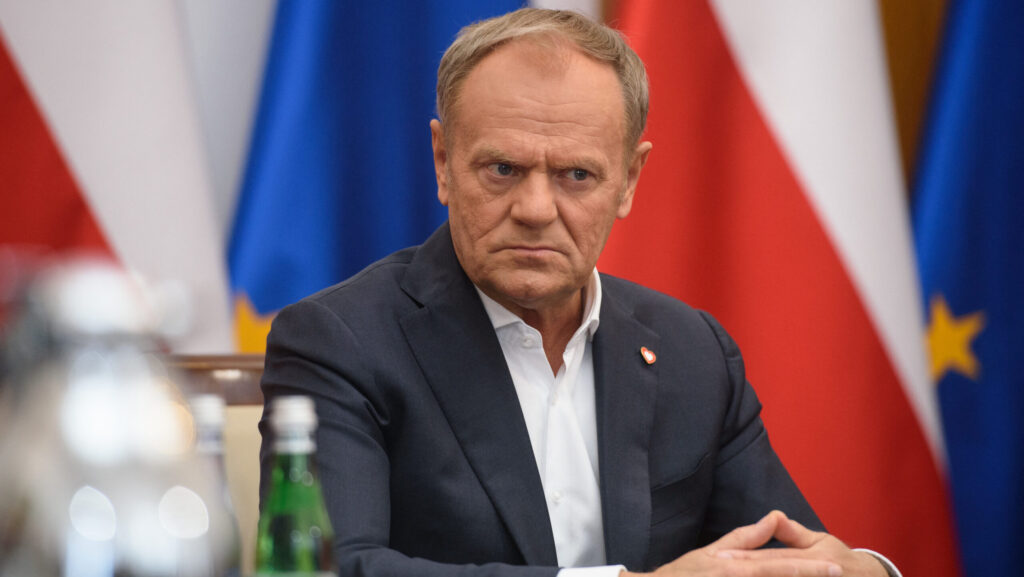EU Freedom of Movement in Jeopardy?
Everyone in the European Union should be concerned about the recent disagreement over temporary border controls between the Czech Republic and Slovakia. Prague unilaterally decided to enact these controls after the number of people entering the nation illegally rose 1,200 per cent year over year, with most of them being young men from Syria. It is obvious that the long-delayed discussion regarding the EU‘s long-term goals on mass migration must finally take place in light of the other bitter dispute that has broken out between Italy and France over migrants rescued at sea.
It is becoming increasingly clear that the freedom of movement of European citizens, which is so essential to the European project, is now in danger in the face of a worsening crisis. The EU will eventually have to face the fact that while it is understandable that migrants want a better life, the current state of migration policy, which places more emphasis on the redistribution of immigrants than on deterrence, offers neither long-term relief for the plight of migrants nor satisfaction for EU citizens. Even while some nations have implemented strict immigration controls, the continent‘s current migrant flows take advantage of the freedom of movement. And the only strategy with a chance of success on a global scale is one that protects the Schengen area‘s internal coherence.
A Strong Stance on Migration
However, the first requirement for such a strategy would probably be the cessation of the demonization of political parties that are strict on immigration. That would not necessarily imply a recognition that these parties are right; it would simply be a reckoning with the fact that migration is a topic that EU residents are getting more and not less concerned about, as evidenced by the parties‘ recent electoral successes. Too often in Europe today those who take a hard line against immigration are dismissed as ‘far right’ or ‘extremist’ and attempts are made to ostracize them. Ursula von der Leyen, to cite just one example, infamously threatened the right-wing coalition led by Giorgia Meloni before Italy‘s election should the new government not go ‘in the right direction’.
However, it is crucial to keep in mind that there are several ways to defend EU ideals. The appropriate boundaries of freedoms enjoyed across the EU must also be upheld, just as the rule of law must be protected. Meloni and Hungarian Prime Minister Viktor Orbán are no longer alone in their belief that free movement is threatened by the enormous migration surges. Strongly pro-EU Interior Minister Vít Rakušan of the Czech Republic has also cited this concern to support his country imposing controls at the Slovak border. Accepting the legitimacy of these worries, EU institutions must now turn their attention to border-related issues and potential remedies. To date, however, the Commission’s position on deterrence has been characterized by inconsistency; on the one hand, it supports Poland’s ‘firm’ stance against migrants trying to enter the EU via Belarus, a hotspot of terrible suffering and deprivation, while on the other, it penalizes Hungary for taking an unyielding stance at its Serbian border.
Because of this inconsistency, Hungary, Austria, and Serbia have recently come to their own agreement, which aims to stop what they emotively refer to as ‘asylum tourism’ by increasing police presence at the North Macedonian border and by deporting people from Serbia. As a result, EU leaders now complain that countries that are experiencing the worst of the migrant problem are impeding their plan of concentrating on the redistribution of asylum seekers. However, it makes sense that these nations are wary of the way these EU‘s efforts attempt to address the issue given the criticism they have received for their deterrence efforts.
Short-Term Band-Aid Fixes
And that is without taking into account the ineffectiveness of redistributive systems, which, even at their best, are still merely short-term band-aid fixes for the ongoing problem of mass migration. It is debatable whether people have the right to apply for asylum in Europe because they want a better life. Also, because there are so many different socioeconomic effects of mass migration within Europe, it is nearly impossible to draw any generic conclusions. There is no question, however, about the hardship brought on by unauthorized attempts to enter and traverse Europe. The only unquestionable moral obligation created by the migrant issue is to put an end to this misery, and the only practical method to do so is through deterrence—preventing individuals from trying to enter the EU illegally.
As the recent border checks in the Czech Republic have demonstrated, halting illegal immigration outside of the EU‘s borders is the only way to maintain freedom of movement within it. Obviously, this will imply harsher law enforcement all along the EU‘s periphery. While mass migration is hardly an ‘invasion,’ it is a major issue that the EU cannot continue to ignore and pretend that the simple redistribution of migrants is even remotely a long-term solution. It is high time for the EU to prioritize internal cohesion, because if we do not address migration now, the very benefits of modern European life—privileges that migrants themselves highly value—may become unsustainable.
Related Articles:








